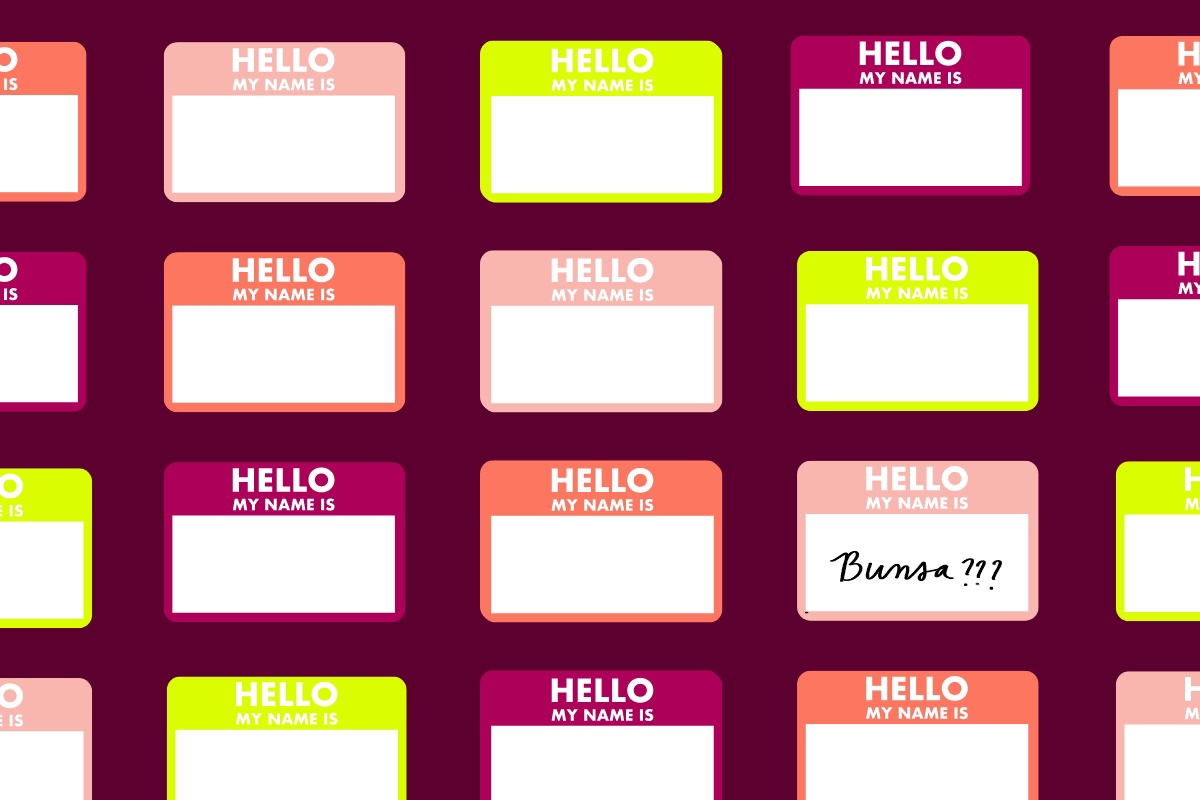I was named Barbara Ann before I was able to utter my intelligible objections. I would never have chosen Barbara Ann. It was 1950 and a popular name of the age, but Barbara Ann? Couldn’t my parents have been more creative? Maybe something with musicality like Allegra, or virtuosity like Joy, or wisdom like Athena.
I understand they wanted something with a B to name me after some distant relative my parents never met. But what about Brooke, or Bella, or even Brie? I’d rather have been a cheese than a name I had to share with infinite others and worse yet, a doo-wop song made famous by The Beach Boys. Ba ba ba ba baba ran. That melody chased me down school hallways of my youth and haunted my dreams.
To add to my disappointment came shame at the age of 10 when I learned my Hebrew name, Bunsa. Bunsa. I hated that name. Bunsa! It conjured the image of a hunchbacked old lady with a wart on her nose. When asked to share it the first day of Hebrew school following my classmates Hannah, Noah, Levi, and Eliana, I mumbled Bunsa. I ducked my head, shamed by the giggles and the fiery insults I imagined hurled at me. Worse yet, I was asked to repeat it.
“Bunsa,” I said again and the teacher, Mrs. Weiss, who didn’t have to share her Hebrew name, leaned in, cupping her ear.
“What? Speak up, dear. I can’t hear you.”
“Bunsa, Bunsa,” I repeated a bit louder until I was shouting. “BUNSA!”
While the shame of this experience shied me from raising my hand to answer questions in class, Mrs. Weiss always managed to pull the cover from my desired invisibility, singing my name in a far less melodious tune than the Beach Boys.
“Bun-saaa.”
The rising chorus of classmates’ giggles unsuccessfully shushed by the teacher who inspired it led to my tears, feigned illness, and outright refusal to attend, leaving Hebrew school only an uncomfortable childhood memory.
Many years later I faced the shame again. In preparation for our son’s bar mitzvah, the rabbi asked my husband and me our Hebrew names. Ely proudly enunciated Eliyahu and the rabbi nodded, impressed by such a powerful name. But when I said Bunsa, his bushy brows joined together, and his face reddened in a failed attempt to swallow his rising laughter.
“There’s no such Hebrew name,” he said, shaking his head and eyeing me over the top of his glasses. “Your parents must have misunderstood. It’s probably Barucha, not Bunsa. We can take care of this during the Shabbat service. No one will even notice.”
I felt my face brighten. Barucha. Now, that’s a name with gravitas, I thought. Barucha means blessing. I may have been driven from Hebrew school by name shame, but now I’d be called to the bimah to begin anew with a respectable name on the same day my son would be called to the Torah in his rise to manhood.
Just days later, standing on the bimah, I released a quiet coo like a happy newborn baby when the rabbi sneaked in a blessing renaming me during the bar mitzvah service. I faced the congregation beaming with pride—pride in our son Michael, the son of Eliyahu and me, Barucha. And as voices of the unaware congregation singing, “Siman tov and Mazal tov,” reverberated through the sanctuary, I stretched my five foot three inches to 10 feet tall and wanted to shout out:
“Yes, thank you. It’s me, Barucha, a blessing.”








